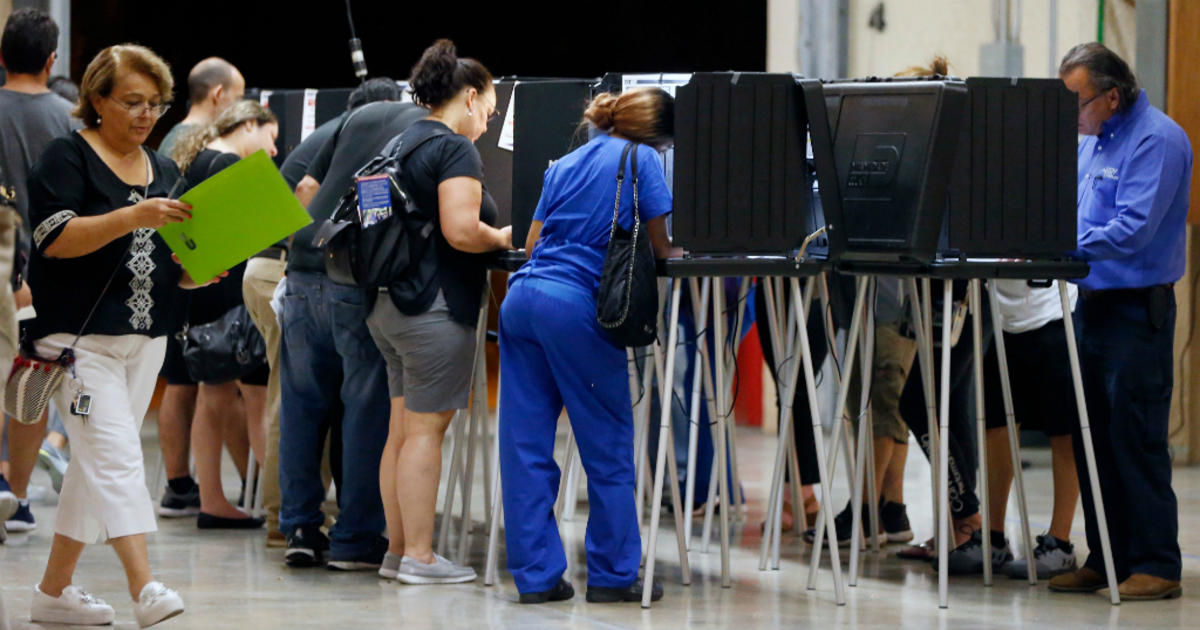Senate Redistricting Battle Looms
Follow CBSMIAMI.COM: Facebook | Twitter
TALLAHASSEE (CBSMiami/NSF) -- As the battle over Florida's political boundaries looms, the Florida Supreme Court is set to make a decision on the disputed congressional districts.
A ruling could come as soon as Thursday.
A trial on state Senate districts that lawmakers drew in 2012 is set to be heard by Circuit Judge George Reynolds beginning Sept. 25. But in a flurry of briefs and arguments filed in recent weeks, the Legislature and a coalition of voting-rights groups and citizens have laid out many of the arguments that Reynolds will hear in the high-stakes trial.
The opponents of the Senate map, led by the League of Women Voters of Florida, have specifically challenged 28 of the 40 districts that lawmakers crafted during the once-a-decade redistricting process that follows every Census. The 2012 process, though, was the first to fall under the state's anti-gerrymandering "Fair Districts" constitutional amendments, which were approved by voters two years earlier.
Critics of the map also say that the entire plan was corrupted by Republican political operatives, who managed to use a public submission process to get their plans in front of redistricting committees controlled by the GOP.
"The Senate Reapportionment Committee did not draw the redistricting plan in public," says a complaint filed by those who want the map thrown out. "Staff or others drew it privately at the direction of the Senate leadership, who, upon information and belief, were collaborating with Republican partisan operatives, with the intent to favor incumbents and to advantage the political party of those Senate leaders."
Proving that political consultants submitted maps through straw men, allowing the operatives to avoid having their fingerprints on the plans, was critical to the plaintiffs' win last year in the congressional case that is before the Supreme Court. Since then, more documents have emerged that opponents of the Legislature's plan say backs up their contention that consultants steered the process.
For example, an email released late last year showed that one Republican consultant congratulated another "on guiding the Senate through the thicket" of redistricting after the Florida Supreme Court approved a second draft of the Senate map. The first draft was thrown out by the high court as part of a legal process separate from the pending trial.
"Looks as if, so far, the Democrats have not realized the gains they think they were going to get," wrote Tom Hofeller, a redistricting consultant at the Republican National Committee, to Florida-based political consultant Rich Heffley.
"Thanks. Big win," Heffley replied to Hofeller. "Worse case minus 2. 26-14."
The GOP did, in fact, lose two seats in the 2012 elections and still maintains a 26-14 advantage in the chamber.
The League of Women Voters and its allies have spelled out reasons for challenging each of the 28 districts, contending that districts were crafted for improper reasons or were affected by the way improper districts were drawn.
For example, the critics of the map argue that it was crafted to ensure that current Senate President Andy Gardiner, R-Orlando, and current Senate Rules Chairman David Simmons, R-Altamonte Springs, would have districts to represent.
They also point to an amendment offered by Sen. Jack Latvala, R-Clearwater, that avoided a potential Senate primary contest between then-Rep. Denise Grimsley, R-Sebring, and Bill Galvano, a Bradenton Republican who served in the House until 2010. Both Grimsley and Galvano were elected to the Senate
"In addition to intentionally drawing lines to favor Representatives Grimsley and Galvano, this last minute change by the Florida Legislature was also intended to help and thus intentionally favor Senator Latvala in his quest to become Senate president by helping candidates who were pledged to vote for him," a brief argues.
A fight between Latvala and Sen. Joe Negron, R-Stuart, for the Senate presidency after the November 2016 elections remains ongoing.
The Legislature has responded to the attacks with some of the same lines of defense it used in the congressional case.
"While partisan operatives on both sides of the political spectrum attempted to influence the process, plaintiffs cannot show that the efforts of those individuals corrupted the intent of the Legislature as a whole," attorneys for the Legislature wrote. "Plaintiffs cannot show that any legislator or legislative staff member knew that any publicly submitted plan was the work of Republican consultants."
Lawyers for the state say that Gardiner and Simmons districts were drawn to protect minority voting rights in a nearby district, and point out that the critics have also at times submitted maps including a district based in Seminole County --- the arrangement that supposedly favored Simmons.
The Legislature also says that the changes in the area of the state where Grimsley and Galvano ran were part of a ripple effect after the mayor of Plant City requested that his municipality be reunited with other parts of Hillsborough County. A previous draft of the map stuck the city with Polk County.
(The News Service of Florida's Brandon Larrabee contributed to this report.)



